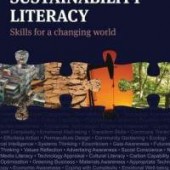Eat local. Choose a reusable bag instead of plastic. Put a brick in the toilet. These are intuitively simplistic environmental “solutions” that may do little but make a person feel environmentally virtuous. Energy and environmental science teaching requires us to change students’ preconceived simplistic notions about solving environmental issues if we want these future leaders to make real environmentally effective decisions. Students need to understand that the energy input in a disposable plastic bag is dwarfed by the energy expenditure of driving to the grocery store with a reusable bag, so that they don’t make symbolic, but ineffective decisions. One approach is to have students attempt to develop a “sustainable” product. The complexity of environmental solutions becomes evident when we have to evaluate the energy use and environmental consequences from raw material sourcing to reuse.
Continue ReadingThis work proposes a novel theoretical framework for sustainability education and explores four possible applications of the framework. Insights from complexity and complexity education elide with patterns from nature to birth four patterns of regenerative, emergent education. In this work I explore these four natural systems models of emergence and apply them to education. For […]
Continue Reading
In this detailed and insightful review, Laura Henry-Stone admires the breadth and cohesiveness of this edited volume from mostly European sustainability educators. She makes a good case for bringing this wide array of pieces under one cover, for avoiding static definitions of sustainability, even the traditional “triple bottom line”, and rather looking outside reductionist approaches to find integration, inter-relation and the kind of broad strokes that the chapters in this book propose for educating and solving for sustainability.
Continue ReadingAbstract Today we find ourselves standing in the crossroads of our future. Will we learn from our past mistakes and successes or become yet another story of societal and ecological collapse? As sustainability educators we are called to consider our contribution to education innovation by asking, as does Stephen Sterling (2001), what is education innovation, […]
Continue Reading